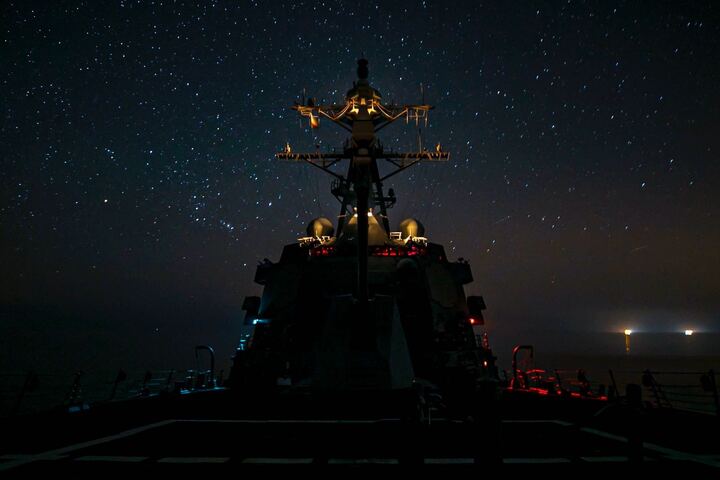This week, 2,000 U.S. Marines and three warships are joining recently deployed fighter jets and a naval destroyer aimed at countering Iran in the Persian Gulf.
Why? Because the unilateral enforcement by the U.S. of sanctions beyond our borders has set off a dangerous tit for tat with Iran that amounts to a competition in piracy.
Mainstream media has widely covered the recent Iranian attempts to harass and seize oil tankers in the Persian Gulf, which the Defense Department has cited as its basis for ratcheting up our military presence to deter Iran.
But however inexcusable, this cycle didn’t actually start with the Iranian attempted seizures. It was initiated when the U.S. Justice Department obtained a U.S. court order to seize a Greek tanker, the Suez Rajan, that was carrying Iranian oil. Iran then responded in kind with its own brazen attempts to seize U.S.-linked oil tankers. And now the U.S. is responding with a military buildup to counter Iran’s counter. At the same time, the U.S. is trying to sell off the Iranian oil it confiscated to, in part, compensate victims of 9/11 (which had nothing to do with Iran). And Iran has vowed to retaliate against any companies that purchase the seized oil, scaring off any potential U.S. customers.
Can someone explain how any of this upholds the “rules based international order”?
Proponents of U.S. seizing Iran-linked oil tankers will say this is merely the U.S. enforcing sanctions that prohibit Iranian oil sales. But here is the thing: there is no international law against Iran selling oil, no UN resolution or even multilateral agreement barring the sale of Iranian oil and giving the U.S. authority to enforce these laws in international waters. These are sanctions based only on domestic U.S. law.
In fact, these sanctions are in contravention of a UN Security Council resolution backed by the U.S. and the other permanent members of the council in 2015 that remains in effect today. But ever since Donald Trump withdrew from the Iran nuclear deal and began imposing “maximum pressure”, the U.S. government has flouted the UN and taken international law into its own hands. Hence, as the U.S. and Iran play whack-a-mole, lawlessness prevails and military escalation accelerates.
What we are seeing is the self-perpetuating cycle of low-level shadow war with Iran that has lumbered on for decades. The tactics of conflict trump any strategy for actually solving the problem.
As long as this continues, the Biden administration will be stuck in the Trump-era, with repeated military deployments to the Persian Gulf accompanied by false proclamations of “restored deterrence” toward Iran.
NIAC and many other advocates continue to press the Biden Administration to take the reins of its Iran policy to halt this dangerous cycle. Yet on the other side, we have hawkish Senators demanding that Biden seize even more Iranian oil, claiming it “makes the United States and its allies safer” and “generates income for the United States in a cost-effective manner”. Apparently that doesn’t include the cost of military deployments to back them up.
Rather than endlessly pursuing strategically self-defeating and internationally dubious U.S. sanctions, and sending in U.S. troops and military assets to further increase the chances of an all-out military exchange, the Biden team needs to extricate itself from its predecessors’ Iran boondoggle. It is imperative to get back to the negotiating table and de-escalate tensions before it’s too late.
Back to top